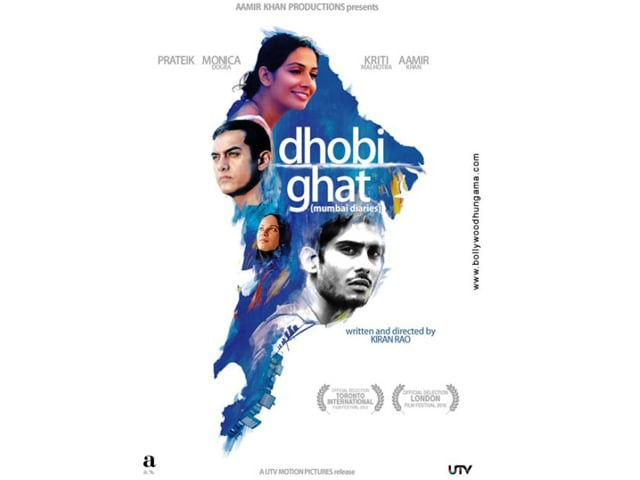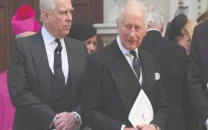Director gives Mumbai fresh face in film 'Dhobi Ghat'
Kiran Rao makes directorial debut in a movie far from the typical Bollywood formula of song, dance and romance.

Instead, the directorial debut of Kiran Rao paints a picture of a city with many layers and people in a 95-minute drama that feels more like a western-style movie that a typical Bollywood formula of song, dance and romance.
Slumdog Millionaire was the Oscar-winning film about a poor Indian boy who finds love and money on a TV game show, and for it, director Danny Boyle created a fast-paced thriller.
Rao, the wife of Indian superstar Aamir Khan, explores the burgeoning city of Mumbai through complex relationships of its disparate residents in Dhobi Ghat, which opened in India and parts of the United States on Friday and is expected to play around the world in coming weeks and months. It had its world premiere at September's Toronto International Film Festival and also played at the London Film Festival.
"I wanted to make a film about the different cities that exist within one city. And that especially happens in Mumbai where the city has so many layers," Rao told Reuters.
The movie intertwines the lives of four, very different people. Arun(Aamir Khan) is a successful artist whose fame has led to a life as an emotional recluse, and Yasmin (Kriti Malhotra) is a shy newlywed about whom Arun becomes obsessed when he sees her in videos he finds in his new apartment.
Munna (Prateik Babbar) is a poor, working dhobi (laundry) boy and nighttime rat killer, as well as an aspiring actor, and Shai (Monica Dogra) is a US banker on sabbatical in Mumbai.
Complex city
Rao said she wanted the four main characters to be from different classes and backgrounds and different languages because Mumbaiis a complex city with so many people and sections that its residents must co-exist, unlike smaller Indian cities where caste systems are firmly entrenched.
She was inspired by the outdoor laundry, Dhobi Ghat, in her adopted hometown of Mumbai, where dhobi's wash the clothes of the rich, middle class and poor in rows of concrete pens.
Rao sees a metaphor for the city in that the clothes of all classes are washed in the same water, connecting them to one another, and she believes Munna, truly defines Mumbai.
"There are millions of people like him who come from the poorest of backgrounds, from castes that have no opportunity. They come toMumbai to find a new life and a new identity," Rao said. "What's amazing about Munna is that he is what the poorer parts of India are like, where the people are far, far more genuine and far, far more sensitive and generous than people who have a lot.
"I think in some ways he represents that hope and optimism and that ideal that you can actually get out of where you are. And in a way that's selfless," said Rao.
Rao's characters feed their emotional needs through companionship in unlikely relationships.
Khan, her superstar husband, plays the emotionally tortured Arun, a successful artist who recoils at attention and mourns the life he once had. When he moves into a new apartment, he finds video diaries left behind by the former tenant, Yasmin.
As he watches her sharing her personal thoughts with the camera, Arun is drawn into Yasmin's life, causing him to reflect on his own.
"His past has left him very brittle. When he finally does open himself up, he feels safety in the fact that the girl who is in front of him is actually not someone who is really in front of him as flesh and blood," Khan told Reuters.
Shai, who comes from a privileged background befriends the Dhobi boy Munna, and soon begins devoting as much time to him as she does to her privileged friends.
"Mumbai is an island that has its own history, its own evolution, its own culture and character...There are layers upon layers of people. You can't get far away from each other. Those are qualities I wanted my characters to possess," Rao said.



















COMMENTS
Comments are moderated and generally will be posted if they are on-topic and not abusive.
For more information, please see our Comments FAQ